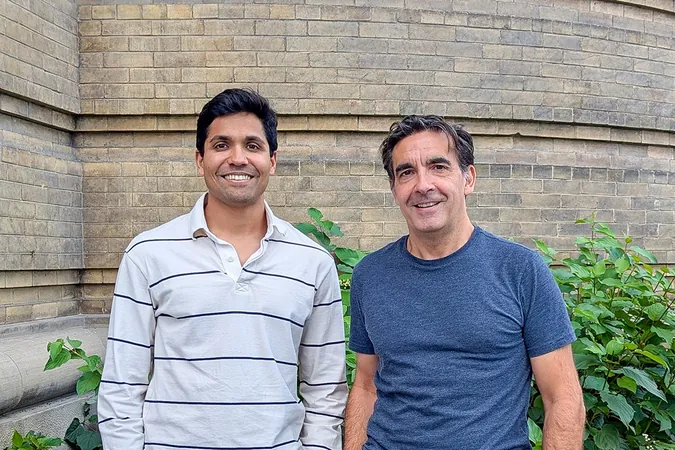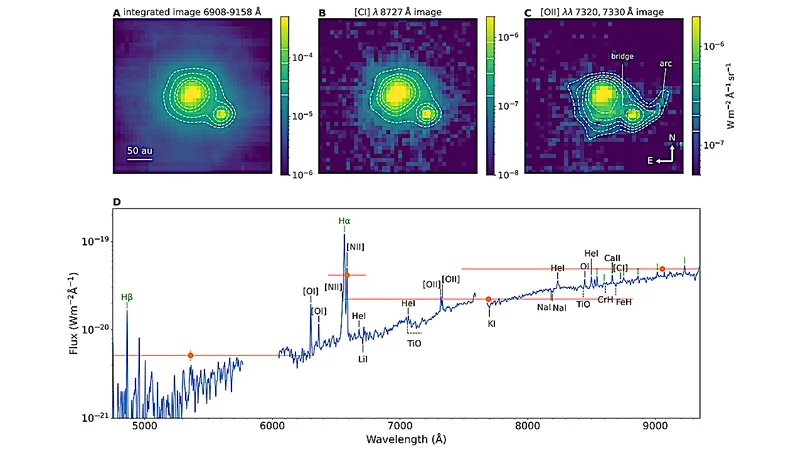
Revolutionary Study Unveils How Gut Bacteria Stimulate Intestinal Stem Cell Healing
2025-09-22
Author: Benjamin
Bacteria's Role in Intestinal Healing Revealed
In an exciting breakthrough, researchers from the University of Toronto have uncovered a remarkable link between gut bacteria and intestinal stem cell regeneration. This study sheds light on how the gut microbiome plays a significant role in maintaining human health, particularly after intestinal injuries.
A Closer Look at the Microbiome’s Influence
Contrary to earlier studies that suggested the gut microbiome had little effect on intestinal stem cells under normal conditions, PhD student Shawn Goyal and his advisor, immunology professor Stephen Girardin, sought to explore the microbiome's impact during injury and healing.
The Findings: Stem Cell Survival and Regeneration
Their findings, published in *Cell Stem Cell*, have profound implications for understanding colorectal cancer and inflammatory bowel disease. Stem cells are known for their incredible ability to replicate and differentiate into various cell types essential for organ and tissue formation.
Everyday Wear and Tear: The Need for Regeneration
"Our bodies continuously need to replace damaged tissues due to daily wear and tear," explains Goyal. In the intestine, stem cells work tirelessly to renew the intestinal lining every few days, acting as a crucial barrier that safeguards our bodies from harmful microbes and toxins.
ADP-Heptose: A Unique Bacterial Sugar
Using mouse and cell models, the researchers identified a distinctive sugar produced by certain bacteria, known as ADP-heptose. This compound triggered a signaling pathway leading to the self-destruction of intestinal stem cells, ultimately affecting intestinal development.
Restoration Through Revival Stem Cells
When exposed to ADP-heptose, lab-grown intestinal organoids exhibited diminished size and lacked the intricate structure required for healthy intestines. Remarkably, ADP-heptose also activated a regenerative program in Paneth cells, a type of intestinal cell that can revert to a stem-cell-like state. These 'revival stem cells' played a crucial role in restoring the lost intestinal cells and re-establishing the intestinal barrier.
A Defense Mechanism Against Cancer?
The researchers propose that this protective mechanism actively eliminates potentially damaged stem cells, replacing them with healthy ones to protect against toxins and microbes. Girardin raises an intriguing question: "Could we have discovered a method through which exposure to microbes prompts the replacement of potentially mutated stem cells, thus offering protection against colorectal cancer?"
Future Exploration of Intestinal Health
Girardin's laboratory is also investigating whether antiviral defenses contribute similarly to maintaining the integrity of the intestinal lining. His research relies on the unique capabilities of the germ-free facility at Temerty Medicine, which enables groundbreaking studies on the gut microbiome.
A Promising Avenue for Medical Research
Funded by the Canadian Institutes of Health Research and Crohn’s and Colitis Canada, this study opens new avenues for understanding how our body's defenses operate and the potential links between our microbiome and serious health conditions.
The Future of Gut Health Research
As Girardin states, "Although germ-free facilities are challenging and costly to maintain, they are crucial for conducting these groundbreaking studies." This ongoing research is poised to reshape our understanding of gut health and its far-reaching implications for disease prevention.









 Brasil (PT)
Brasil (PT)
 Canada (EN)
Canada (EN)
 Chile (ES)
Chile (ES)
 Česko (CS)
Česko (CS)
 대한민국 (KO)
대한민국 (KO)
 España (ES)
España (ES)
 France (FR)
France (FR)
 Hong Kong (EN)
Hong Kong (EN)
 Italia (IT)
Italia (IT)
 日本 (JA)
日本 (JA)
 Magyarország (HU)
Magyarország (HU)
 Norge (NO)
Norge (NO)
 Polska (PL)
Polska (PL)
 Schweiz (DE)
Schweiz (DE)
 Singapore (EN)
Singapore (EN)
 Sverige (SV)
Sverige (SV)
 Suomi (FI)
Suomi (FI)
 Türkiye (TR)
Türkiye (TR)
 الإمارات العربية المتحدة (AR)
الإمارات العربية المتحدة (AR)